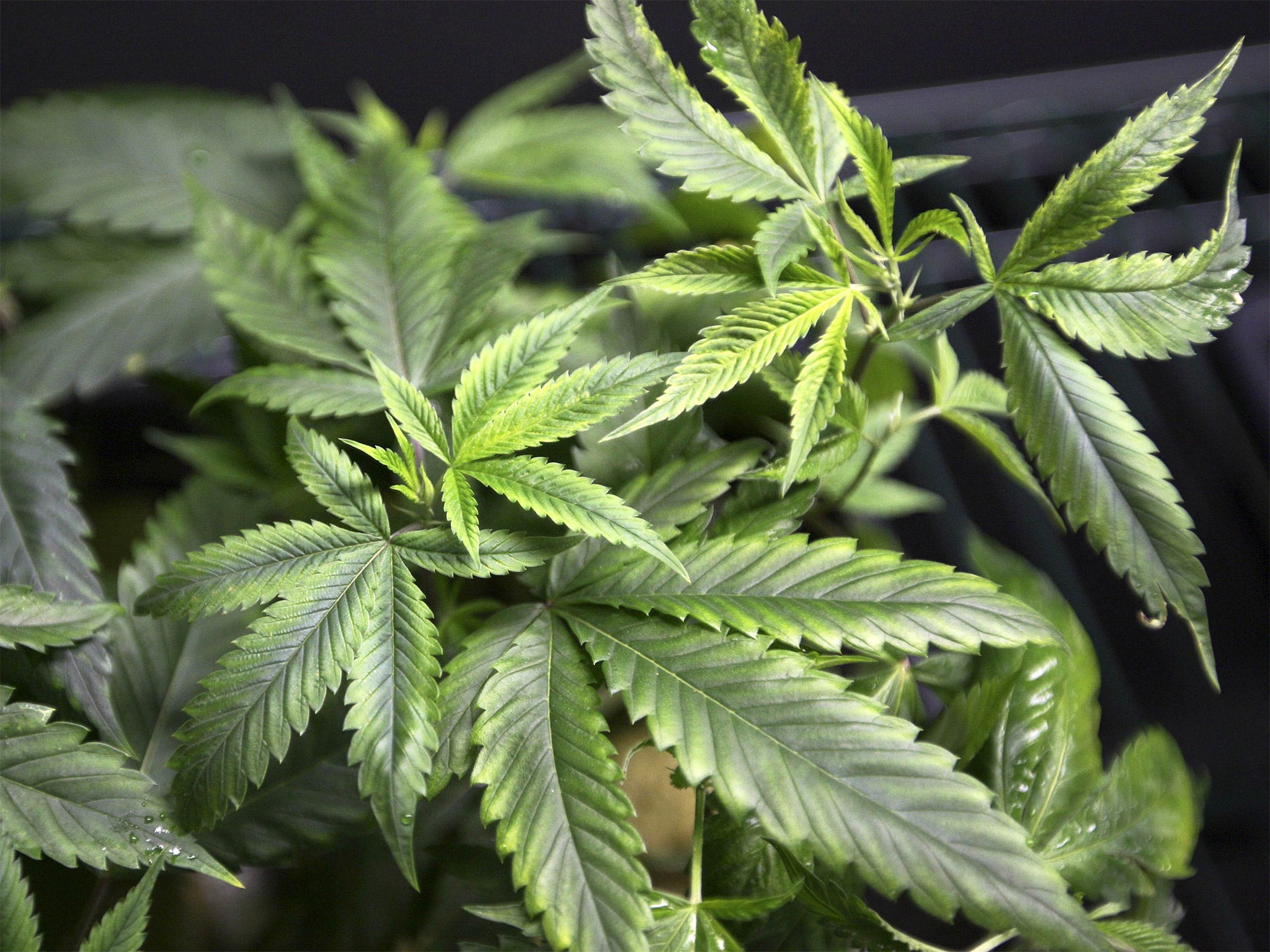Marijuana: Ohio rejects move to legalise drug for recreational and medical use
Officials decreed that if the law passed only marijuana from ten predesignated farms inside the state would be available for purchase, and this potential monopoly saw even those sympathetic to decriminalisation vote against the initiative

Your support helps us to tell the story
From reproductive rights to climate change to Big Tech, The Independent is on the ground when the story is developing. Whether it's investigating the financials of Elon Musk's pro-Trump PAC or producing our latest documentary, 'The A Word', which shines a light on the American women fighting for reproductive rights, we know how important it is to parse out the facts from the messaging.
At such a critical moment in US history, we need reporters on the ground. Your donation allows us to keep sending journalists to speak to both sides of the story.
The Independent is trusted by Americans across the entire political spectrum. And unlike many other quality news outlets, we choose not to lock Americans out of our reporting and analysis with paywalls. We believe quality journalism should be available to everyone, paid for by those who can afford it.
Your support makes all the difference.The movement to legalise marijuana in the United States is looking for ways to regroup after voters in Ohio overwhelmingly rejected a ballot initiative to make the drug freely available for both recreational and medical use.
Supporters of decriminalised pot consumption had been counting on Ohio becoming the first Midwestern state to embrace their cause. Instead, voters turned their backs on the initiative by a surprisingly large margin, suggesting a possible stalling of momentum for their campaign.
Colorado, Washington, Oregon and Alaska, along with the District of Columbia, have all legalised recreational marijuana in the last few years. Medical marijuana is now legal in about half of US states.
But instead of envisioning a free market in marijuana, officials in Ohio had decreed that if the law passed only marijuana from ten predesignated farms inside the state would be available for purchase. Much of the money from the “Yes” campaign had come from investors in those ten putative farms, including celebrities like former boy band singer Nick Lachey and basketball legend Oscar Robertson.
Even some who would normally sympathise with decriminalising the drug said they couldn’t support an arrangement that would have conferred a grip on its distribution and the expected profits on ten farms.
“I can't believe I voted 'No' when it was finally on the ballot," said Marty Dvorchak, 62, of the northern Cincinnati suburb of Fairfield. "I think it's ridiculous that marijuana is illegal. The war on drugs has been a failure. But I don't think 10 people should have a monopoly."
The legalisation campaign is likely to try again in the state if the burden of the monopoly restrictions can be dropped. But Governor John Kasich, a Republican presidential candidate, praised the outcome. “At a time when too many families are being torn apart by drug abuse, Ohioans said no to easy access to drugs and instead chose a path that helps strengthen our families and communities," he said.
Join our commenting forum
Join thought-provoking conversations, follow other Independent readers and see their replies
Comments